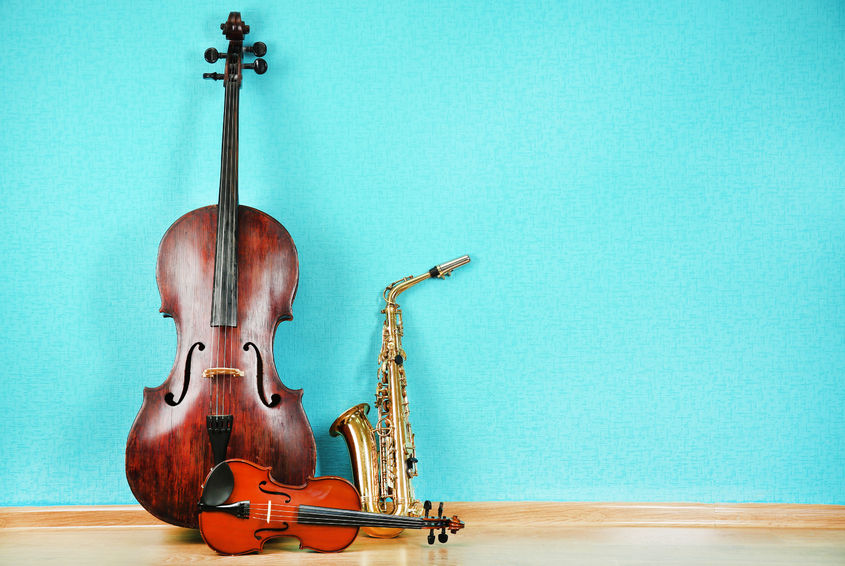Learning music is something so many people want to do, but for those who have never tried to play an instrument, it seems like a daunting task. As a music teacher, I have found that there are few things both beginners and parents of beginners should do before starting music lesson in order to get the best experience they can from their teacher.
5) Find out what music you or your child likes.
While you will be exposed to new types of music as you work with a teacher, it can really help both the student’s and the teacher’s experience to come in with some ideas of what you like. This can help shape the direction the teacher takes with the songs you will learn and make for a much more enjoyable experience. If you love Led Zeppelin, it will be more fun – and more rewarding – to learn their songs, as opposed to learning how to play classical music.
Not everyone knows what they like, especially younger kids who haven’t been exposed to a lot of music yet. This offers a great opportunity to go out to shows, see people play, and listen to music with your kids. Kids will be honest about what they like and they will get excited to know that they can learn a song they recently discovered.
4) Pick an instrument that works for you.
Consider the student’s existing strong points when deciding on which instrument to learn.
Picking the right instrument to learn can make the difference between having a successful time learning music and struggling through it. But it can be difficult to find the right instrument for you. You’ll want something that you enjoy playing, otherwise you’ll quickly lose interest. So, think about the sound that you like and what role in a band you may like to serve as, and consider if you think you might be able to learn some of the basics fairly quickly. It’s best to try out a lot of instruments to see what you like, but if you can’t, you can still try a few things to see what you’d like.
Different instruments require different skill sets, so finding an instrument that fits your style can make things much easier. Brass and woodwinds each require a specific embouchure, so you may want to see if you can make a sound out of them before taking lessons. If you’re great at playing glass bottles by blowing air over them, flute may be a great choice. If your hands are dexterous, guitar or bass may be an easy choice for you. Or, if you prefer to sit down when everyone else is standing on stage, the drum set may be your favorite option. This is by no means a way to define the right instrument for you, so make sure to try out a bunch at your local music store and see what comes easily to you.
3) Find a teacher with a good personality fit.
Choose a teacher who your child is comfortable with and who is professional.
Not all musicians have the same personality, and neither do music students. You’ll be spending a lot of time with your teacher, and a lot of time practicing for your teacher, so you had better like him or her. A teacher that you get along with and respect will inspire you to practice and become a better musician. So, if there are a few saxophone teachers in your area, meet up with a few to see who you or your child would get along with the best. Everyone likes to learn in different ways, so finding a good match can help create a musical bond with your teacher that can keep you interested and learning for years.
2) Set goals with the teacher before starting and find a song to learn.
It’s important to have reasonable expectations, but I have always found it much more fun as a teacher when students want to learn specific songs. Learning the entire guitar solo to Bohemian Rhapsody after a month of starting your instrument may not be a realistic goal, but talk with your teacher about some songs that you want to learn and they will be able to help guide you toward something within your skill level. And don’t worry, with enough practice, you will be able to rock out to Queen on any instrument you want to.
1) Get a good quality beginner instrument
Buying a higher quality – but pre-owned – instrument is advisable over buying a cheaper, poorly made one.
You don’t need a million-dollar instrument to learn on, but having something that won’t fall apart in a month will save you a lot of frustration. The cheapest option is usually cheap for a reason, and poorly crafted instruments are simply not fun to play. It’s not fun when your guitar goes out of tune after the first note, or when your saxophone keys start leaking after a month. Repair techs will often not work on very cheaply made instruments as one repair won’t fix all of the instrument’s problems, and new problems are bound to come up with poor workmanship. It’ll often be easier and cheaper to simply buy a better instrument. But, you can still save some money by sticking to known brands that make student instruments or renting for a little while. You can also get a recommendation from your teacher as they may know of some people selling well-made, used instruments.




